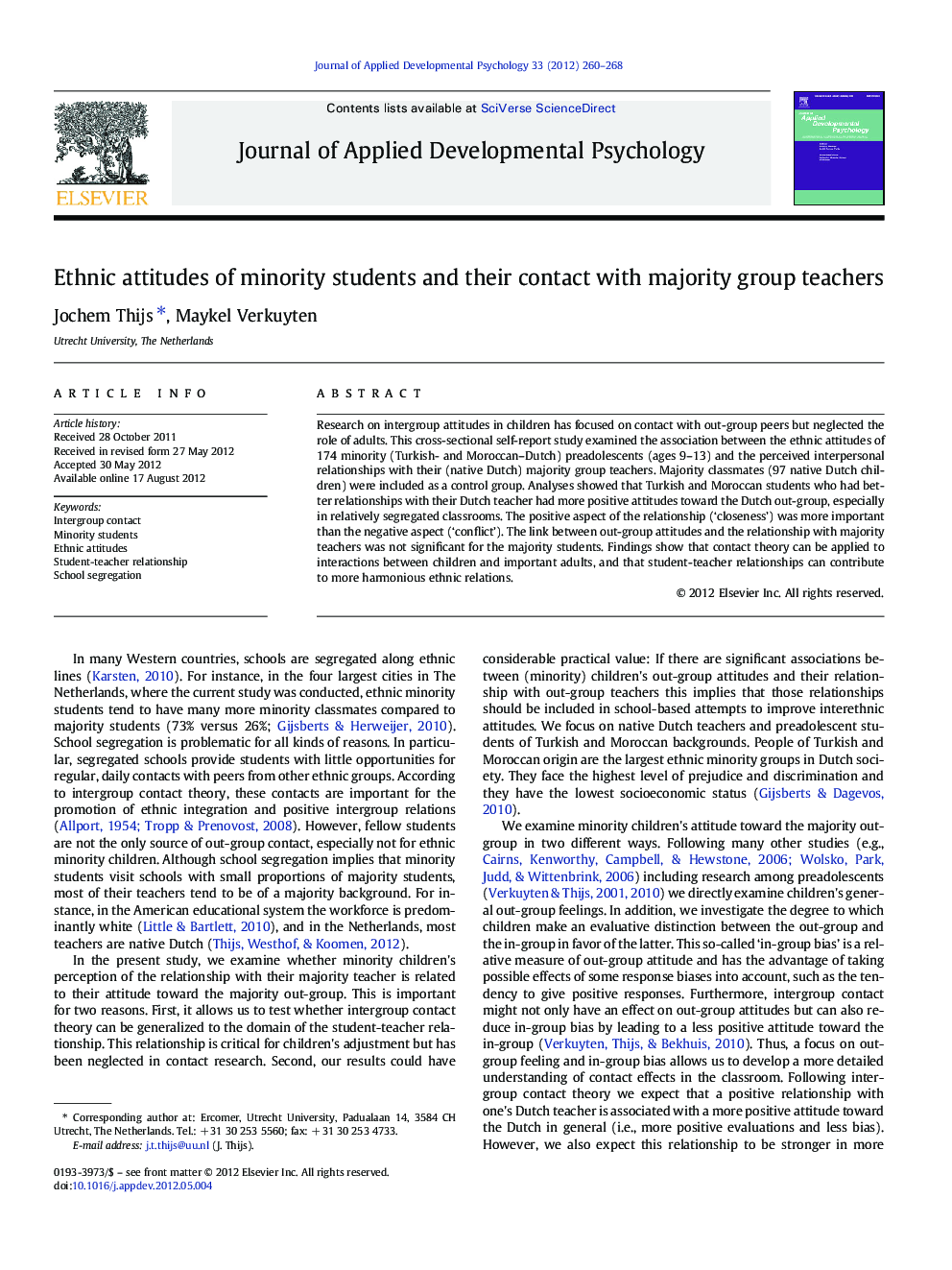| Article ID | Journal | Published Year | Pages | File Type |
|---|---|---|---|---|
| 359712 | Journal of Applied Developmental Psychology | 2012 | 9 Pages |
Research on intergroup attitudes in children has focused on contact with out-group peers but neglected the role of adults. This cross-sectional self-report study examined the association between the ethnic attitudes of 174 minority (Turkish- and Moroccan–Dutch) preadolescents (ages 9–13) and the perceived interpersonal relationships with their (native Dutch) majority group teachers. Majority classmates (97 native Dutch children) were included as a control group. Analyses showed that Turkish and Moroccan students who had better relationships with their Dutch teacher had more positive attitudes toward the Dutch out-group, especially in relatively segregated classrooms. The positive aspect of the relationship (‘closeness’) was more important than the negative aspect (‘conflict’). The link between out-group attitudes and the relationship with majority teachers was not significant for the majority students. Findings show that contact theory can be applied to interactions between children and important adults, and that student-teacher relationships can contribute to more harmonious ethnic relations.
► We examine minority children's relationship with their majority out-group teacher. ►Better relationships were related to more positive out-group attitudes. ►This finding was most pronounced in relatively segregated classrooms. ►Results were not significant for a control group of majority students.
